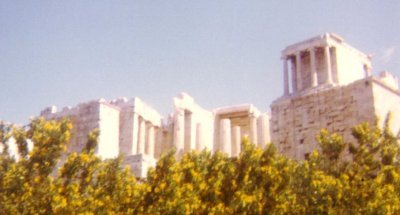Home
Catalog
African
Age of Reason
Alchemy
Americana
Ancient Near East
Asia
Atlantis
Australia
Basque
Baha'i
Bible
Buddhism
Celtic
Christianity
Classics
Aristotle
Homer
Hesiod
Aeschylus
Sophocles
Euripides
Plato
Virgil
Ovid
Procopius
Lucian
Gibbon
Confucianism
DNA
Earth Mysteries
Egyptian
England
Esoteric/Occult
Evil
Fortean
Freemasonry
Gothic
Gnosticism
Grimoires
Hinduism
I Ching
Islam
Icelandic
Jainism
Journals
Judaism
Legends/Sagas
LGBT
Miscellaneous
Mormonism
Native American
Necronomicon
New Thought
Neopaganism/Wicca
Nostradamus
Oahspe
Pacific
Paleolithic
Philosophy
Piri Re'is Map
Prophecy
Roma
Sacred Books of the East
Sacred Sexuality
Shakespeare
Shamanism
Shinto
Sikhism
Sub Rosa
Swedenborg
Sky Lore
Tantra
Taoism
Tarot
Thelema
Theosophy
Time
Tolkien
UFOs
Utopia
Women
Zoroastrianism

|
The Works of Hesiod |
Works and Days,
Hugh G. Evelyn-White, tr. [1914]
The Theogony,
Hugh G. Evelyn-White, tr. [1914]
Hesiod lived in the 8th century BCE, probably about the same time or shortly after Homer. He refers to himself as a farmer in Boeotia, a region of central Greece, but other than that we know little. His poetry codified the chronology and genealogy of the Greek myths. Works and Days and the Theogony are the only two complete works we have of Hesiod, other than the first few lines of a poem called the Shield of Heracles.
In Works and Days Hesiod divided time into five ages:--the Golden age, ruled by Cronos, when people lived extremely long lives 'without sorrow of heart'; the Silver age, ruled by Zeus; the Bronze age, an epoch of war; the Heroic age, the time of the Trojan war; and lastly the Iron age, the corrupt present. This is similar to Hindu and Buddhist concepts of the Kali Yuga. The idea of a Golden Age has likewise had a profound impact on western thought. Works and Days also discusses pagan ethics, extols hard work, and lists lucky and unlucky days of the month for various activities.
The Theogony presents the descent of the gods, and, along with the works of Homer, is one of the key source documents for Greek mythology; it is the Genesis of Greek mythology. It gives the clearest presentation of the Greek pagan creation myth, starting with the creatrix goddesses Chaos and Earth, from whom descended all the gods and men; it mentions hundreds of individual gods, goddesses, demi-gods, elementals and heroes.